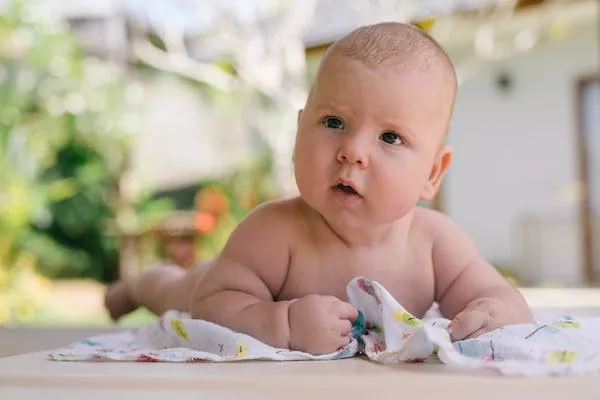The ability to hear is an incredible gift that connects us to the world around us. For infants, the development of hearing is a fascinating process that starts before birth and continues to evolve throughout early childhood. Understanding the stages and milestones of hearing development in infants is essential for parents and caregivers to foster healthy communication and language skills. In this article, we will explore the remarkable journey of hearing development in infants, from the prenatal period to the early years, highlighting the crucial role it plays in their overall growth and development.
Prenatal Hearing:
Hearing development begins in the womb, even before a baby is born. By the 20th week of gestation, the auditory system of the fetus is structurally formed, and they start to perceive sounds from the external environment. Research suggests that unborn babies can respond to various sounds, including their mother’s voice, music, and environmental noises. The amniotic fluid acts as a conductor, allowing sound vibrations to reach the developing inner ear.
Prenatal exposure to sound not only provides auditory stimulation but also lays the foundation for bonding and emotional connections between the baby and their parents. Expectant mothers can engage in activities like reading aloud, talking, and playing music, which can positively influence the auditory development of their unborn child.
Newborn Responses to Sound:
After birth, newborns exhibit remarkable responses to sound stimuli. They have a preference for human voices, especially their mother’s voice, which they have been familiar with during the prenatal period. Infants turn their heads and display signs of attention when hearing familiar voices, indicating their ability to recognize and distinguish sounds.
Loud noises or sudden sounds can startle newborns, triggering the Moro reflex, characterized by spreading their arms and legs. This reflex gradually diminishes as infants become accustomed to various sounds in their environment.
Localization and Discrimination:
As infants grow, their ability to localize and discriminate sounds becomes more refined. Around three to four months of age, they can turn their heads towards the source of a sound. This milestone demonstrates their developing spatial awareness and sound localization skills.
Furthermore, infants become more adept at discriminating between different sounds and pitches. They can differentiate between voices, tones, and environmental noises. Their ability to recognize their native language and detect subtle differences in speech sounds lays the foundation for language acquisition.
Language Development:
Hearing plays a pivotal role in the development of language skills in infants. By six months of age, infants start to babble, experimenting with sounds and syllables. They imitate the sounds they hear and begin to associate certain sounds with specific objects or actions.
Around the age of one, infants typically utter their first words. Continued exposure to language-rich environments and interactive communication with caregivers enhances their vocabulary and comprehension skills. Infants who are consistently exposed to a diverse range of sounds and language experiences are more likely to develop robust linguistic abilities.
Early Intervention and Support:
While most infants follow a typical trajectory of hearing development, some may encounter hearing difficulties. It is crucial to identify hearing impairments early to provide appropriate intervention and support. Regular hearing screenings during infancy and ongoing monitoring of language milestones can aid in early detection.
If hearing loss is detected, various interventions are available, including hearing aids, cochlear implants, and auditory rehabilitation programs. Early intervention services, such as speech therapy and auditory training, can significantly improve a child’s communication skills and overall quality of life.
Conclusion:
The journey of hearing development in infants is a remarkable process that begins before birth and continues to evolve throughout early childhood. From prenatal sound exposure to the acquisition of language skills, hearing plays a pivotal role in a child’s overall development. As parents and caregivers, fostering a language-rich environment, engaging in interactive communication, and ensuring regular hearing screenings are essential for supporting optimal hearing development in infants. By nurturing their auditory abilities, we empower them to embrace a world full of sounds, enabling meaningful connections and lifelong learning.


